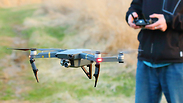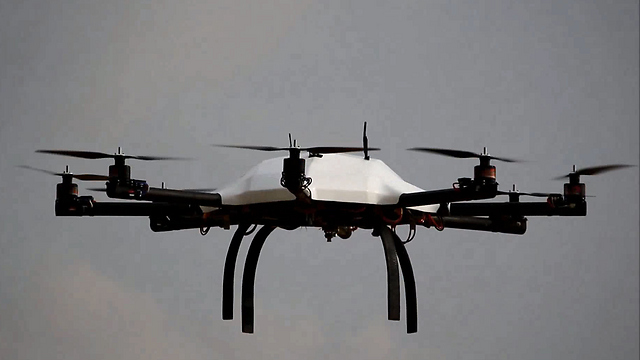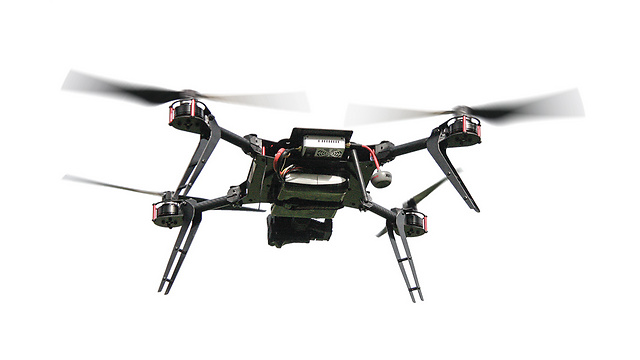
State comptroller: Israel not prepared to deal with drone danger
Terror groups like ISIS and Hezbollah use drones both for surveillance and to carry and drop bombs, while civilian drones being flown close to Ben-Gurion Airport endanger commercial planes and private aircraft.
State Comptroller Yosef Shapira warned in a report released Wednesday that Israel was not prepared to deal with the danger and threat posed by unmanned aerial vehicles (UAV).
According to the report, there are close to 20,000 civilian drones in Israel, but the Civil Aviation Authority (CAA) cannot properly supervise their operations.
The CAA's inspectors do not have enough authority against drone operators, who fly them dangerously close to civilian planes, including near the Ben-Gurion International Airport.
The comptroller further pointed to an increase in the number of safety incidents in recent years—one in 2014, 14 in 2015, and 24 in 2016).
The CAA said in response: "We will study the report and act accordingly."
Even though the Israel Police determined drones constitute a life-threatening danger, there has been no decision made on who is responsible to address the danger of drones inside Israel: the IDF or the police.
The National Security Council in the Prime Minister's Office—which is supposed to coordinate between the IDF and the police—has been conducting research on the matter for two and a half years but has yet to present any conclusions.
While the police avoid taking responsibility for the drone danger, the IDF is not prepared to deal with it either.
The air force, according to the comptroller, has no measures to deal with the danger nor a budget allocated to that end.
The IDF's Spokesman's Office said in response, "The IDF has accelerated its operations against drones and will allocate more resources to these operations. Over the past year, the air force brought down several drones as part of its operations to protect Israel's airspace."
Drone interception systems already exist
Israel's defense industries—primarily Rafael Advanced Defense Systems, the Israel Aerospace Industries and the Israel Military Industries—are already exporting drone-interception systems to other countries."The threat is no longer that of a lone drone, but a flock of drones. ISIS already uses drones not just for surveillance, but also to drop 5kg-bombs," warned Col. (res.) Meir, who heads Rafael's anti-drone department.
"Israel's defense establishment needs to make a decision. The abilities already exist, and the threat is only going to become more serious," he continued.
"We need systems both mobile and stationary, the kind that could protect against drone attacks on sensitive facilities or events attended by the prime minister and other senior officials."
Rafael's system includes radar, daytimes and nighttime cameras, a system to identify drones and disrupt communications between the drone and its operator, and a low-level laser to intercept at a range of 2.5km. The system costs $1.5 million.
"On Jerusalem Day, we saw a spectacular performance of a flock of 100 drones to the sound of the Philharmonic Orchestra. Nasrallah also has his own Philharmonic Orchestra," the Rafael official added.
The Prime Minister's Office said in response, "The drone matter is known and addressed in Israel, which is a world pioneer in providing a solution to the problem. On May 14, 2017, Prime Minister Netanyahu held a discussion on the topic, and on June 28, 2017, a Cabinet meeting was held, in addition to professional discussions within the National Security Council. Prime Minister Netanyahu instructed the National Security Council, the Defense Ministry and the Ministry for Public Security to promote national preparedness to the drone matter. Prime Minister Netanyahu has already turned to other countries facing the same problem."
In the coming weeks, the Cabinet will be asked to approve a comprehensive plan formulated by the National Security Council to deal with drones.
The plan includes a technological solution by the Defense Ministry and tasks the IAF with defending against drones on Israel's borders and in the West Bank, while the Israel Police will defend against UAVs inside Israel and security services will be entrusted with the defense of sensitive facilities.
Itamar Eichner contributed to this report.












